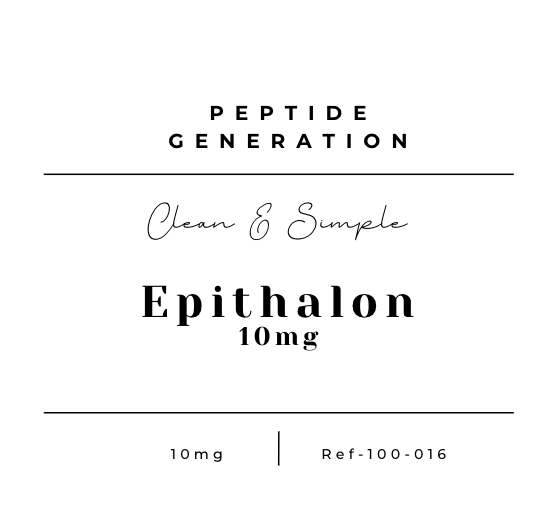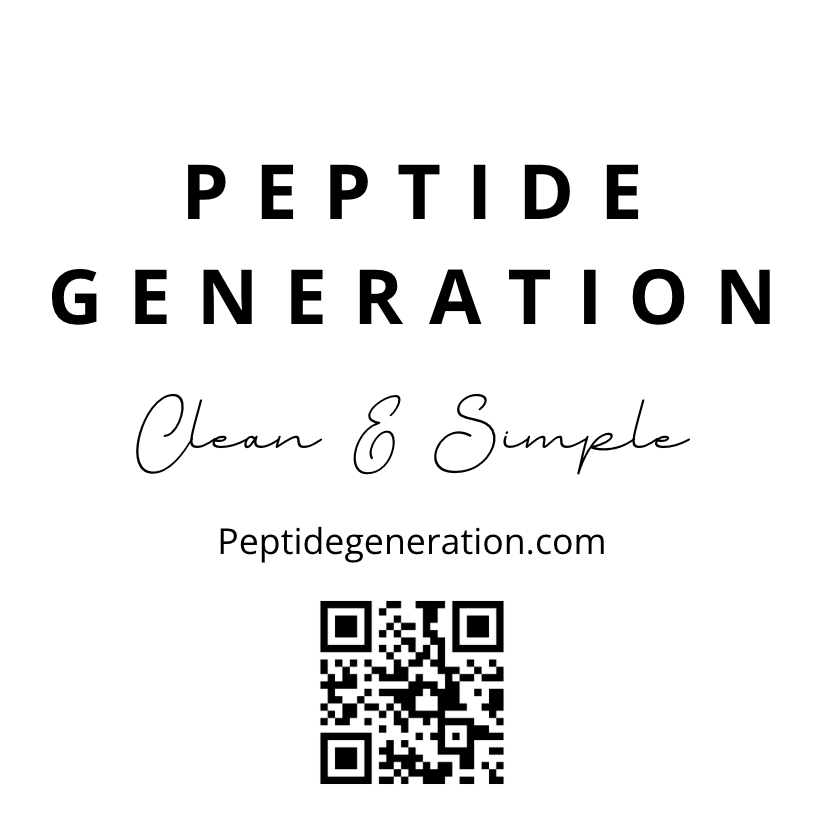 Image 1 of 1
Image 1 of 1


Epithalon 10mg
🔬 What Is Epithalon?
Epithalon (also spelled Epitalon) is a synthetic tetrapeptide (Ala-Glu-Asp-Gly) derived from Epithalamin, a natural extract of the pineal gland.
It was first studied in Russia by Professor Vladimir Khavinson and is considered part of the “bioregulator peptides” group.
It is often associated with anti-aging, longevity, and telomere support research.
⚙️ Mechanism of Action (Proposed)
Telomerase activation: May increase telomerase activity in cells, helping maintain or lengthen telomeres (linked to slower cellular aging).
Gene expression modulation: Influences expression of genes involved in stress resistance, DNA repair, and antioxidant defenses.
Melatonin regulation: Normalizes circadian rhythm and pineal gland function, supporting better sleep and hormone balance.
Immune modulation: Enhances T-cell activity and immune resilience.
Antioxidant effects: Reduces oxidative stress in tissues.
📌 Potential Benefits (Based on Research)
Anti-aging / longevity: Associated with improved healthspan in animal studies and Russian human trials.
Telomere support: Reported to increase telomere length in immune cells in elderly patients.
Sleep & circadian rhythm: Improves melatonin secretion and sleep cycles.
Immune health: May restore age-related declines in immune function.
Disease protection: Early research explored benefits in cancer prevention, neurodegeneration, and metabolic disorders.
⚠️ Most studies come from Russian research centers; large-scale Western clinical trials are lacking.
⚠️ Safety
Reported as well tolerated in available studies.
Side effects are rare and usually mild (injection site irritation, fatigue).
Long-term safety in humans is not fully established → still considered experimental outside of Russian clinical practice.
✅ Key Takeaways
Epithalon = pineal-derived tetrapeptide studied for anti-aging and telomere effects.
Mechanism: May activate telomerase, regulate melatonin, enhance immunity, and reduce oxidative stress.
🔬 What Is Epithalon?
Epithalon (also spelled Epitalon) is a synthetic tetrapeptide (Ala-Glu-Asp-Gly) derived from Epithalamin, a natural extract of the pineal gland.
It was first studied in Russia by Professor Vladimir Khavinson and is considered part of the “bioregulator peptides” group.
It is often associated with anti-aging, longevity, and telomere support research.
⚙️ Mechanism of Action (Proposed)
Telomerase activation: May increase telomerase activity in cells, helping maintain or lengthen telomeres (linked to slower cellular aging).
Gene expression modulation: Influences expression of genes involved in stress resistance, DNA repair, and antioxidant defenses.
Melatonin regulation: Normalizes circadian rhythm and pineal gland function, supporting better sleep and hormone balance.
Immune modulation: Enhances T-cell activity and immune resilience.
Antioxidant effects: Reduces oxidative stress in tissues.
📌 Potential Benefits (Based on Research)
Anti-aging / longevity: Associated with improved healthspan in animal studies and Russian human trials.
Telomere support: Reported to increase telomere length in immune cells in elderly patients.
Sleep & circadian rhythm: Improves melatonin secretion and sleep cycles.
Immune health: May restore age-related declines in immune function.
Disease protection: Early research explored benefits in cancer prevention, neurodegeneration, and metabolic disorders.
⚠️ Most studies come from Russian research centers; large-scale Western clinical trials are lacking.
⚠️ Safety
Reported as well tolerated in available studies.
Side effects are rare and usually mild (injection site irritation, fatigue).
Long-term safety in humans is not fully established → still considered experimental outside of Russian clinical practice.
✅ Key Takeaways
Epithalon = pineal-derived tetrapeptide studied for anti-aging and telomere effects.
Mechanism: May activate telomerase, regulate melatonin, enhance immunity, and reduce oxidative stress.

